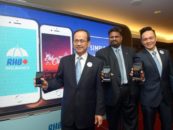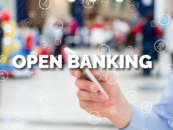
The Story of Sugar: Why a Company Pivoted from Buy Now Pay Later to Save Now Buy Later
by Rebecca Oi January 4, 2023Buy now pay later, or BNPL, solutions have recently gained traction. These solutions allow customers to purchase items and pay for them later, either in installments or full. A Juniper Research report predicts that BNPL users will surpass 900 million globally by 2027; increasing from 360 million in 2022.
There are different BNPL providers, each with its terms and conditions. However, the concept is the same: you can get the items you want now and pay for them over time.
However, founders Dylan Tan hailing from Malaysia, and Vishvesh Suriyanarayanan, from India, in an interview with Fintech News Malaysia, said they started Sugar with the vision to provide an alternative solution to the BNPL model, which is the Save Now and Buy Later (SNBL) scheme.
The world of Save Now Buy Later
While BNPL schemes have been criticised for encouraging impulse spending and leading to debt problems, SNBL schemes are touted to help people save for big-ticket items without accruing debt.
Although the segment is still in its infancy, a handful of startups worldwide have devised SNBL schemes to incentivise saving for big spending.
How exactly does it work? Under these schemes, customers contribute small amounts to a savings goal every month. Once the goal is reached, they can use it to purchase the item.
This approach, also known in the retail industry as Lay-By, was historically offered by brick-and-mortar stores as an interest-free way for customers to break up the cost of large purchases.
With the rise of e-commerce, the same can now be done via apps and websites. Tortoise and Hubble are some companies operating in the SNBL space in India. At the same time, this scheme is offered by startups such as Accrue Savings and Join Reel in the United States and Neobank Up, an independent subsidiary of Bendigo and Adelaide Bank from Australia.
Tan and Suriyanarayanan believe that by saving up for something we want, we can have the funds to pay for it later. They say this is a more viable alternative to taking on debt to pay for items.
The move from Buy Now Pay Later to Save Now Buy Later
Tan and Suryanarayanan initially founded a BNPL service in travel bookings coined Split. The company won the WiT Singapore’s 2018 Startup Pitch and raised VC funding from Entrepreneur First and 500 Global at the end of 2019.
However, the company’s mission to make travel more affordable and accessible hit a snag when the pandemic struck and decimated the travel industry. Suddenly changing direction became a daunting challenge, but that’s precisely what the duo did.
The team pivoted Split into an e-commerce BNPL similar to Afterpay or Klarna and rode on the wave of low interest rates, stimulus checks, and, most importantly, how people were caught up with home shopping.
In 2022, the show halted after a VC pulled out from Split’s Series A equity funding. This was a difficult decision and not one that Tan took lightly. He had to consider the company’s future and what was best for its long-term success. In the end, he made the tough call to shut down Split.
He believed that BNPL could not have been more sustainable in the long run and that there needed to be a clear path to building a successful business with US$100 million in revenue.
Tan’s decision was based on his understanding of the market and the future of the payments industry. He was confident that there were better solutions than BNPL for the company’s long-term success.
Starting Sugar on Malaysian shores
The initial genesis of Save now Buy Later started with a customer walking into one of Split’s merchant outlets a year ago requesting Lay-By, and this was the aha-defining moment for the duo.
They then decided to launch Sugar in June 2022 in Malaysia with some of their trusted BNPL merchants. While gradually growing their user base, the duo enthusiastically received feedback from any user willing to speak to them.


Rewards and Cash back on Sugar
Tan is diligently researching Malaysian consumerism behaviours with his team. After speaking to Agensi Kaunseling & Pengurusan Kredit (AKPK), he discovered that close to 70 percent of buyers are planners. In comparison, the remaining 30 percent prefer instant gratification.
In addition, during the earlier days of the experimental phase of launching Sugar, the duo interviewed some of their users again from Split and asked if they could defer their gratification to receive a cash reward or a discount for delayed shipping; many opted to do so.

Dylan Tan
“The following insights were that some purchases, by definition, are that users don’t need to have them today. For example, even if I buy travel today, I will wait to travel. This could apply to Umrah; therefore, we can work with travel agents to make it more affordable for people to purchase travel packages. So, let’s spread the idea. Now let’s run some experiments to determine whether this theory is true,” Tan said excitedly.
However, the duo’s challenge is to figure out who finds it most useful, for what purchases, which merchants, and underlying all that to make it a sustainable business. To them, that’s the biggest question.
Moving towards ending the sour note on a Sugar high
Sugar is making steady progress by leveraging its previous experience with Split, which was also Shariah-compliant and had excellent business relationships with prior merchants.
Tan told Fintech News Malaysia that whenever he pitched Sugar to anyone, the standard response he gets is, who wants to save up for something when they can buy now and pay later?
“This ignores the reality that BNPL and credit cards represent a small minority of all e-commerce transactions worldwide, especially in Southeast Asia. People have always been saving up to buy stuff – Sugar makes it easier and more rewarding,” said Tan.
He added that users can earn sweet rewards through cashbacks when they save up for the things they want through Sugar’s app.

Vishvesh Suriyanarayanan,
Suriyanarayanan echoed the sentiment: “It can get tempting to use credit even for nonessential spending.”
“We’ve seen people abuse it and get into dangerous debt spirals that get so tough to escape. Make no mistake, some may claim that “paying later” is a budgeting tool, but the best budgeting tool is saving up, especially for stuff we don’t need today,” he added.
When asked when a big launch would be held in Malaysia, Tan had this to say.
“From a startup founder’s perspective, there will probably be a dozen launches, as we are constantly tweaking and experimenting – listening to users’ and merchants’ feedback,” said Tan.
“Our goal is to allow our users to afford what they want; sustainably as sweet things come to those who wait,” he added.
He added that Sugar would start with a few merchants in Malaysia, and there could be four to five versions of the app. By quarter two of 2023, Tan said that his key indicator of measured success would be the weekly growth of users as Sugar is currently operating in an unknown space, and there will always be changes ahead.
Only time will tell for this entrepreneurial duo as they take the journey through the Save Now Buy Later landscape and use their experiences as startup founders to create sweet deals with Sugar.








